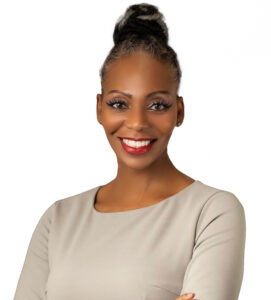For years, I struggled to land a job as a Black woman in Canada, and I knew my natural hair played a role in the rejection. But my battle with hair stigma started long before my job search. As a Ghanaian woman, I vividly remember the moment my insecurity about my natural hair began.
As a child, my mother would style my hair into intricate Ghanaian hairstyles —beautiful, culturally rich, and a reflection of my heritage. But at school, those same hairstyles made me a target for bullying and ridicule from white students. The teasing chipped away at my confidence, planting the idea that my natural hair was something to be ashamed of.
As I grew older, the pressure to conform only intensified. Despite being more qualified, I watched white counterparts land jobs I couldn’t, reinforcing the idea that professionalism had a specific, Eurocentric look—one that didn’t include my kinks and coils. I turned to relaxers, wigs, weaves—anything that would make me feel like I fit in. But fitting in came at a cost. My hair became brittle, broken, and lifeless from years of chemical treatments and artificial additions.
Then, over a decade ago, I had a moment of reckoning. I woke up, looked in the mirror, and said: No more! I took scissors to my damaged hair, cutting it all off. It was terrifying, but it was also liberating. I started my loc journey that day, sitting in front of my bathroom mirror, twisting my hair into small coils.
It wasn’t always easy. There were moments of doubt, awkward stages, and the lingering societal pressure to conform. But I had an incredible support system—girlfriends with stunning locs who encouraged me, shared tips, and introduced me to products that nourished my hair. I also found three amazing locticians who helped me along the way.
Now, almost three years into my loc journey, I have strong, beautiful locs, some intertwined with grey strands that I embrace wholeheartedly. I no longer feel the weight of hair stigma or the need to prove that I belong. I’ve thrown out every wig, weave, and extension. For the first time in my life, I am completely in love with my natural hair.
To my fellow Black women: I encourage you to embrace your natural beauty. Let go of the damaging chemicals, the pressure to conform, and the belief that our natural hair isn’t enough. It is enough. It’s beautiful, powerful, and deeply rooted in our heritage.
We don’t need to change ourselves to fit into a mould that was never made for us. We are already perfect, just the way God made us.

